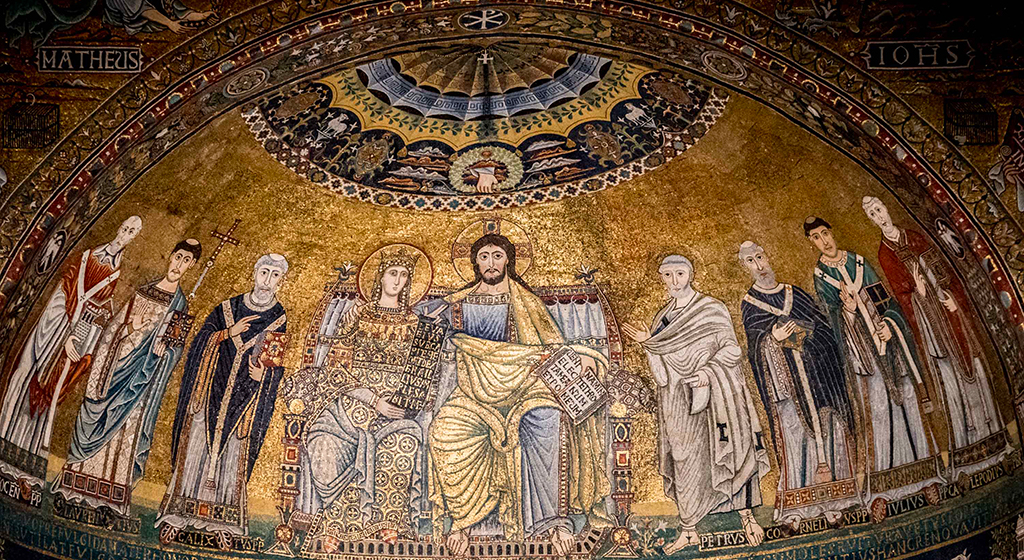Memory of the Church
Memorial of Saint Augustine (+430), Bishop of Hippo (present day in Algeria) and a Doctor of the Church.
Reading of the Word of God
Alleluia, alleluia, alleluia
I am the good shepherd,
my sheep listen to my voice,
and they become
one flock and one fold.
.
Alleluia, alleluia, alleluia
1 Thessalonians 3,7-13
And so, brothers, your faith has been a great encouragement to us in the middle of our own distress and hardship; now we can breathe again, as you are holding firm in the Lord. How can we thank God enough for you, for all the joy we feel before our God on your account? We are earnestly praying night and day to be able to see you face to face again and make up any shortcomings in your faith. May God our Father himself, and our Lord Jesus, ease our path to you. May the Lord increase and enrich your love for each other and for all, so that it matches ours for you. And may he so confirm your hearts in holiness that you may be blameless in the sight of our God and Father when our Lord Jesus comes with all his holy ones.
Alleluia, alleluia, alleluia
I give you a new commandment,
that you love one another.
Alleluia, alleluia, alleluia
The good news that Timothy reports to Paul about the Thessalonian community is happy and consoling news, a 'good news,' as the text literally puts it. Paul feels consoled because his work has not only not been in vain but is bearing fruit. And the memory retained of him, together with the desire to see him again, is particularly pleasing to Paul, not least because it shows the concrete meaning of evangelical communion. Communion is not simply a psychological bond, but a vital relationship that binds the community to the apostle. It is not enough, therefore, that a community lives an industrious 'faith' and an active 'labour of love' (see 1:3). If it remains closed in on itself, it does not 'stand firm in the Lord' (3:8). Only in effective, active, visible, concrete communion with other communities does the Lord become fully present among believers. The desire that the Thessalonians have to meet Paul again (but also that of the apostle to see them again) expresses the concreteness of communion made up of effective personal relationships, the indispensable fabric of fraternity. Paul is four hundred kilometres from Thessalonica, yet he does not spare himself to meet them, perhaps through his envoys. Communion is nourished and solidified through direct and personal relationships, through which love, friendliness, amiability are manifested. Paul, perhaps remembering the faces of the Christians of the community he loved and cared for, does not know what to offer to God in thanksgiving. His love for those children he has begotten to faith immediately becomes prayer, an "earnest" plea, not only that he may see them again soon, but also to "restore whatever is lacking in your faith" (3:10). Paul is well aware that the believer, as well as every community, must continue to grow in faith and love. The knowledge of Jesus requires daily listening to the Word of God. Paul feels a grave responsibility for helping them in this growth. He therefore asks God to pave the way for them, since Satan has hitherto blocked the way (2:18). But already in his letter he exhorts them to "increase", indeed, to 'abound' in love for one another and towards others, as he himself does with them. The love that God bestows on his children is like a fountain that continually overflows because it knows no limits. Those who welcome God's love into their hearts live by it and already now possess the future.
